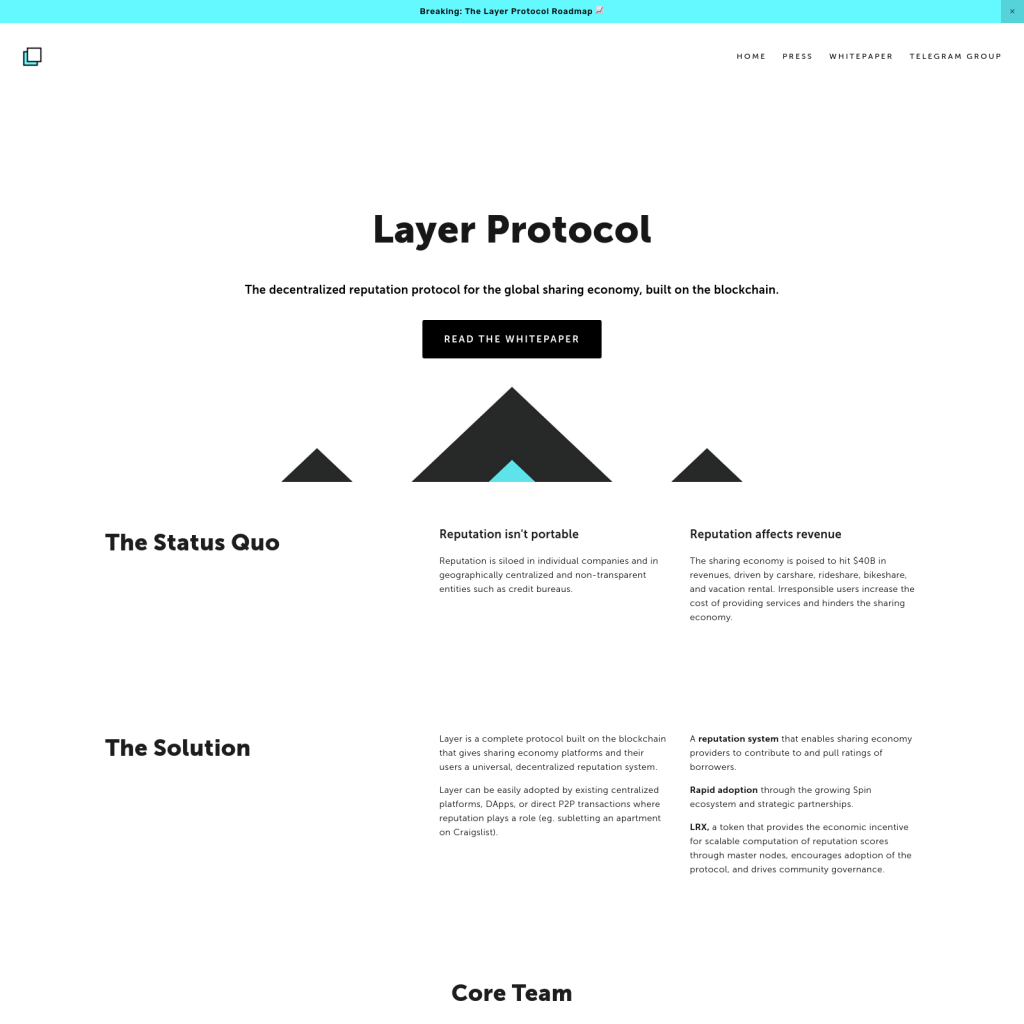Core<br />
<br />
<br />
Identity Match API: The API matches two identities without user claim by trusted identity signer. This fixes the issue of unclaimed identities lacking data, or users repeatedly signing up to perform bad behavior.<br />
<br />
<br />
Utilities<br />
<br />
<br />
Sample Application: Complete, open source, and deploy a sample application for viewing data on Layer Protocol.<br />
<br />
<br />
Layer Nodes<br />
<br />
<br />
Testing and Optimization: Continual optimization of Layer Nodes around performance, gas costs, and security.
.png)
.png)







.png)